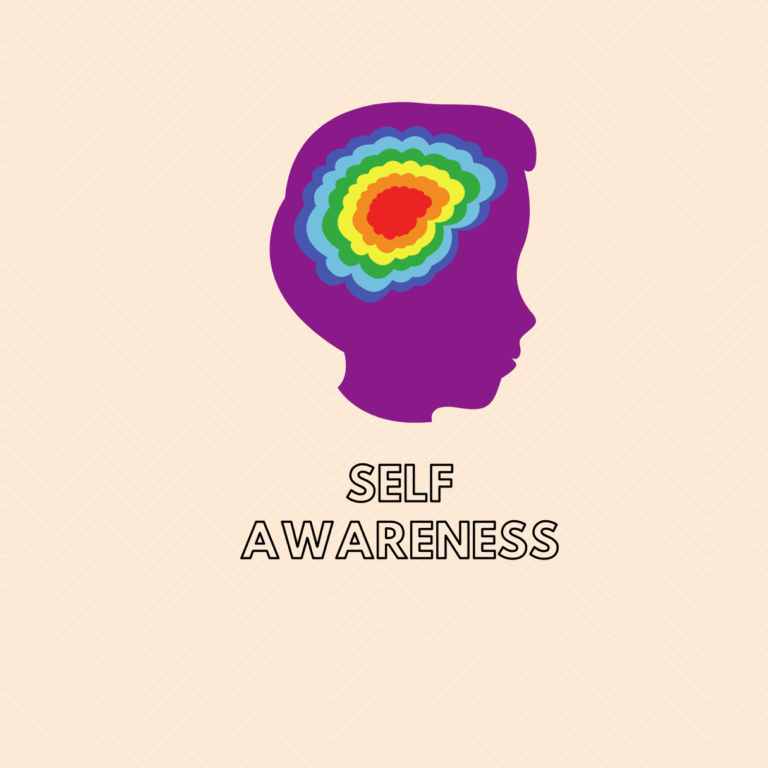Relationship Struggles? Shadow Work Can Help You Build Healthier Connections
In your path through relationship struggles, embracing shadow work can aid you in forming healthier connections. Understand hidden aspects of yourself, uncover unconscious patterns, and free suppressed emotions. Acknowledge repeated behaviors, emotions, and experiences from your past to gain deeper insights. Healing inner wounds through self-reflection and seeking support leads to growth. Cultivate self-awareness, empathy, compassion, and vulnerability for stronger bonds. Enhance communication skills for better conflict resolution and understanding. Building trust through openness and mutual support is key. A journey of self-discovery awaits to empower your relationships.
Key Takeaways
- Explore hidden aspects of psyche to uncover unconscious patterns and beliefs.
- Reflect on past interactions to understand relationship patterns and emotions.
- Acknowledge and heal inner wounds for personal growth and healthier connections.
- Cultivate self-awareness through self-reflection to navigate future relationships with awareness.
- Practice empathy, compassionate listening, and vulnerability for deeper, more meaningful connections.
Understanding Shadow Work
To truly grasp the concept of shadow work, you must explore deeply into the hidden aspects of your psyche that influence your thoughts and behaviors. It’s through this introspection that you can begin the journey of self-awareness and healing in your relationships. Exploring self-awareness is an important step in shadow work as it allows you to uncover the unconscious patterns and beliefs that shape how you interact with others.
By delving into your shadow self, you can shine a light on the parts of you that have been suppressed or ignored. These shadow aspects often stem from past experiences, traumas, or societal conditioning that have influenced your relationships without you even realizing it. As you bring these hidden aspects to the surface, you can start to understand why you react in certain ways and work towards healing relationships that may have been strained or challenging.
Shadow work isn’t easy, but it’s a powerful tool for personal growth and creating healthier connections with those around you. Embrace this process with compassion and openness, knowing that it can lead to profound transformations in your relationships and overall well-being.
Identifying Relationship Patterns
As you reflect on your past interactions, recognizing repeated behaviors can shed light on your relationship patterns.
By understanding the underlying emotions that drive these behaviors, you can gain valuable insights into your connections with others.
Taking this introspective approach can help you navigate future relationships with a deeper awareness of yourself and those around you.
Recognizing Repeated Behaviors
Recognize the repeated behaviors in your relationships that may be influencing your overall connection dynamics. It’s essential to identify these patterns to understand how they impact your interactions with others.
- Recognizing Triggers: Pay attention to situations or actions that consistently lead to conflict or emotional distress in your relationships.
- Breaking Cycles: Work on breaking the cycle of negative behaviors or responses that you find yourself repeating in different relationships.
- Reflecting on Reactions: Take time to reflect on how you react to certain behaviors or situations and contemplate if there are patterns in your responses.
Understanding Underlying Emotions
Understanding the emotions underlying your interactions can provide valuable insights into the patterns influencing your relationships. Exploring emotions allows you to uncover deep-seated feelings that may be driving certain behaviors. By delving into your emotional responses, you can begin to recognize recurring patterns in your relationships.
This pivotal step in healing trauma and breaking free from destructive cycles. Identifying the underlying emotions that surface during interactions can help you understand why you react in specific ways and why certain dynamics repeat themselves. Through this process, you can gain a better understanding of yourself and your relationships, paving the way for healthier connections built on self-awareness and emotional growth.
Uncovering Subconscious Beliefs
As you explore the domain of subconscious beliefs, you’re peeling back layers to uncover hidden patterns that shape your interactions.
By examining past experiences with curiosity and compassion, you can shed light on ingrained thought processes that influence your relationships.
This journey of self-discovery can lead to a deeper understanding of yourself and pave the way for healthier connections with others.
Identifying Hidden Patterns
Uncover the hidden patterns shaping your subconscious beliefs to deepen your understanding of yourself and improve your connections with others. Exploring hidden triggers and uncovering subconscious patterns is an important step in shadow work. Here are three key ways to identify these hidden patterns:
- Journaling: Writing down your thoughts and emotions can reveal recurring themes or reactions that indicate underlying patterns.
- Therapy: Working with a therapist can help you uncover deeply rooted beliefs or experiences that influence your behavior in relationships.
- Feedback: Seeking feedback from trusted individuals can provide insights into patterns of behavior that you may not be aware of on your own.
Examining Past Experiences
To gain a deeper understanding of your subconscious beliefs and their impact on your connections with others, reflect on past experiences that have shaped your perceptions and responses.
Exploring childhood memories can provide valuable insights into the roots of your relational patterns. Consider how your early interactions with caregivers, peers, or authority figures may have influenced your beliefs about trust, intimacy, and communication.
Reflect on experiences that left a lasting emotional imprint, both positive and negative, as these can shape your behavior in relationships today. By delving into your past with curiosity and compassion, you can uncover hidden beliefs that may be affecting your present connections.
Taking the time to reflect on these formative experiences can empower you to make conscious choices that lead to healthier and more fulfilling relationships.
Healing Inner Wounds
Healing your inner wounds starts with acknowledging their presence and understanding their impact on your well-being. These wounds may stem from past experiences, shaping your beliefs and behaviors in relationships. Embracing the journey of healing can lead to profound personal growth and transformation.
Here are three key steps to guide you through the process:
- Self-Reflection: Take the time to introspect and explore the roots of your inner wounds. Understanding the origins of your pain can help you address it effectively.
- Seeking Support: Don’t hesitate to reach out to trusted friends, family, or a therapist. Opening up about your struggles can provide valuable insights and emotional support.
- Practicing Self-Compassion: Be gentle with yourself during this healing process. Treat yourself with kindness and understanding, just as you’d a dear friend going through a tough time.
Cultivating Self-Awareness
Gain a deeper understanding of yourself by setting out on a journey of self-discovery and reflection. Cultivating self-awareness through self-reflection is a powerful tool for personal growth. Take time to explore your thoughts, emotions, and behaviors without judgment. By examining your beliefs, values, and past experiences, you can uncover patterns that may be influencing your relationships.
Self-reflection involves asking yourself meaningful questions and being open to honest answers. Consider journaling as a way to document your thoughts and feelings. Look for common themes or triggers that arise in different situations. This awareness can help you identify areas for personal development and growth.
As you deepen your self-awareness, you may notice how your own insecurities or past traumas impact your interactions with others. By understanding these aspects of yourself, you can work towards healing and creating healthier connections. Remember, self-awareness is an ongoing process that requires patience and compassion towards yourself. Embrace this journey of self-discovery as a means to cultivate personal growth and nurture more fulfilling relationships.
Practicing Empathy and Compassion
Practicing empathy and compassion towards others is key to fostering deeper and more meaningful connections in your relationships. By honing in on emotional intelligence, you can better understand the feelings and perspectives of those around you. This awareness allows you to respond in ways that are sensitive and considerate, strengthening the bond you share with others.
Compassionate listening plays an essential role in this process. It involves not only hearing the words spoken but also tuning into the emotions underlying them. When you practice compassionate listening, you show that you value the other person’s experiences and feelings, creating a safe space for open and honest communication.
Additionally, offering support without judgment is another important aspect of practicing empathy and compassion. Being there for someone unconditionally, with kindness and understanding, can help them feel seen, heard, and supported in times of need.
Embracing Vulnerability in Relationships
To deepen your connections with others, consider embracing vulnerability in your relationships as a pathway to profound understanding and intimacy. Vulnerability acceptance is essential in fostering emotional connections that are authentic and deep. When you allow yourself to be vulnerable, you show your true self, creating a space for genuine emotional exchanges. This openness can lead to a stronger bond with your partner, friend, or family member.
Trust building is a key component of embracing vulnerability. By sharing your vulnerabilities, fears, and insecurities, you invite the other person to do the same. This reciprocal sharing fosters trust and strengthens the foundation of your relationship. Open communication plays a crucial role in this process. Honest conversations about your feelings and experiences can lead to a deeper mutual understanding and empathy.
Enhancing Communication Skills
Improving your communication skills is essential for fostering stronger and more meaningful relationships with those around you. Effective communication is the cornerstone of healthy connections, enabling you to express yourself clearly and understand others better.
Here are some key points to enhance your communication skills:
- Effective Listening: Actively listen to what the other person is saying without interrupting. Show that you understand by paraphrasing or reflecting back their words.
- Conflict Resolution: Learn how to navigate disagreements calmly and constructively. Focus on finding solutions rather than escalating the conflict.
- Clear Expression: Practice articulating your thoughts and feelings openly and honestly. Use ‘I’ statements to convey your emotions without blaming others.
Building Trust and Intimacy
Enhancing your communication skills lays a solid foundation for building trust and intimacy in your relationships. Effective communication involves active listening, expressing your feelings openly, and being empathetic towards your partner’s needs. To build trust, it’s vital to be transparent and honest in your interactions. Share your thoughts and emotions authentically, creating a safe space where both partners feel heard and understood.
When it comes to intimacy, vulnerability plays an important role. Opening up about your fears and insecurities can deepen the emotional connection between you and your partner. Overcoming fears together can strengthen the bond and create a sense of mutual support. Building connections requires effort from both sides, so be willing to invest time and energy into nurturing your relationship.
Remember that trust and intimacy take time to develop, so be patient with yourself and your partner. By working on enhancing your communication skills and being vulnerable with each other, you can create a strong foundation for a healthy and fulfilling relationship.
Conclusion
As you continue on your journey of shadow work to build healthier relationships, remember that you’re like a gardener tending to the soil of your heart. By digging deep, pulling out weeds of past hurts, and nurturing the roots of self-love, you can cultivate a garden of thriving connections.
Embrace the process with patience and care, knowing that the blossoms of authentic intimacy and trust will eventually bloom in your relationships. Keep tending to your garden, for it will flourish with time.







